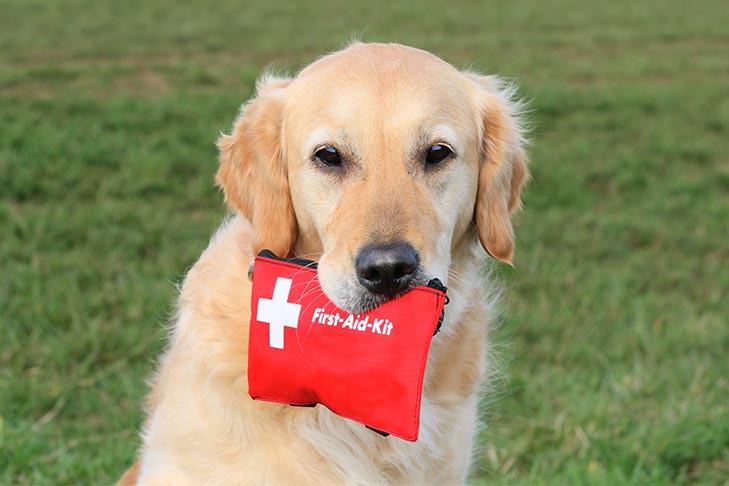As pet parents, we all want our furry friends to live long, happy, and healthy lives. But sometimes, even with the best care, pets can face health challenges that catch us off guard. The good news? Many common pet health problems are preventable with a little knowledge, routine care, and the right products.
In this guide, we’ll cover the most frequent issues pets face and share tips to help you keep your companion healthy and happy.

1. Fleas and Ticks: Tiny Pests, Big Problems
Fleas and ticks are more than just annoying they can cause itching, allergic reactions, and even transmit dangerous diseases like Lyme disease.
How to prevent them:
- Regular use of flea & tick prevention chews or spot‑on treatments.
- Bathing with anti‑flea shampoo.
- Brushing with a flea comb and maintaining a clean environment.
Pro Tip: Check your pet’s fur after every walk or play session outside, especially during spring and summer.
Regular use of flea and tick prevention products can protect your pet from annoying pests and serious diseases.”
2. Digestive Issues: From Upset Tummies to Serious Trouble
Vomiting, diarrhea, or irregular bowel movements are signs that your pet’s digestive system may be stressed. Poor diet, sudden changes in diet, or food allergies often cause this.
Prevention tips:
- Feed high-quality, sensitive stomach dog or cat food.
- Add probiotics to support gut health.
- Avoid feeding pets human foods that can upset their stomach.
Friendly Reminder: Sudden or severe digestive problems should always be checked by your vet — don’t ignore recurring symptoms.
Adding digestive health supplements for dogs and cats can help maintain a healthy gut and prevent common digestive issues.
3. Dental Problems: Keep Those Teeth Healthy
Dental health is often overlooked, but it’s crucial. Tartar buildup can lead to gum disease, tooth loss, and even heart problems in pets.
How to prevent dental issues:
- Provide dental chews or bones.
- Brush your pet’s teeth regularly with pet‑safe toothpaste and a toothbrush.
- Use water additives designed for dental hygiene.
Explore our Grooming & Hygiene supplies for dental care tools and treats.
LuluSpot Tip: Dental treats aren’t just tasty — they actively reduce plaque while keeping your pet happy.
4. Skin and Coat Problems: More Than Just Itchiness
Dry skin, hair loss, or excessive scratching can indicate allergies, poor nutrition, or parasites. Keeping your pet’s coat healthy requires both external care and internal support.
Prevention tips:
- Feed a diet rich in omega‑3 fatty acids or add Skin & Coat Health supplements.
- Bathe with gentle, medicated, or oatmeal‑based shampoos.
- Use skin-soothing sprays or wipes for immediate relief.
Pro Tip: Regular brushing removes loose hair and stimulates natural oils, keeping skin healthy and shiny.
5. Joint and Mobility Issues: Support Aging Pets
As pets age, joint problems like arthritis can make movement painful. Even younger, active pets can benefit from preventive care.
Prevention tips:
- Include joint supplements like glucosamine or chondroitin in your pet’s diet.
- Provide orthopedic beds for proper support.
- Use mobility support harnesses during walks or hikes.
Support your pet’s movement and comfort with our Bone & Joint Support supplements.
Friendly Note: Low‑impact exercise, like short walks or swimmin,g helps maintain joint flexibility.
6. Obesity: A Growing Concern
Overweight pets are at risk for diabetes, heart disease, and joint issues. Maintaining a healthy weight is easier than you think.
Prevention tips:
- Feed weight-management food.
- Use interactive slow-feeding bowls to control portions.
- Keep pets active with treat-dispensing toys and regular playtime.
LuluSpot Tip: Even a few extra minutes of daily play can help prevent weight gain.
Quick Prevention Summary Table
| Health Issue | Prevention Products / Links |
| Fleas & Ticks | Flea & tick chews, spot-on treatments, and anti-flea shampoo |
| Digestive Problems | Sensitive stomach food, probiotics, and avoid human food |
| Dental Problems | Dental chews, toothbrush & toothpaste, water additives → Grooming & Hygiene |
| Skin & Coat | Omega-3 supplements, medicated shampoo, skin-soothing sprays → Skin & Coat Health |
| Joint Issues | Joint supplements, orthopedic beds, mobility harnesses → Bone & Joint Support |
| Obesity | Weight-management food, slow-feeding bowls, interactive toys |
LuluSpot Care Tip
Regular vet checkups are your best tool for catching health problems early. Combine professional care with the right products, a balanced diet, and daily love your pet will thank you with wagging tails and happy purrs!
Keeping your pet healthy doesn’t have to be overwhelming. By understanding common health issues and taking preventive steps, you can ensure your furry friend lives a long, vibrant life. Start today by checking your pet’s routine care, adding the right supplements, and keeping up with regular vet visits.
FAQs:
1. How often should I take my pet to the vet for routine checkups?
Most vets recommend at least once a year for adult pets, and twice a year for senior pets. Regular checkups help catch health issues early.
2. Are flea and tick preventatives safe for all pets?
Most are safe when used according to instructions, but always consult your vet, especially for puppies, kittens, or pets with health conditions.
3. How can I tell if my pet is overweight?
Look for a visible waistline and feel their ribs. If you can’t feel their ribs easily, your pet may need a weight management plan.
4. What are the best ways to keep my pet’s teeth healthy?
Regular brushing, dental chews, and water additives are all effective. Explore grooming tools like toothbrushes and chews for additional support.
5. How can I improve my pet’s coat and skin?
A balanced diet, omega‑3 supplements, and regular grooming are key. Skin-soothing shampoos and wipes can help with dryness or irritation.
6. At what age do pets usually start showing joint problems?
Large breeds may show signs as early as 4–5 years, while smaller breeds typically show them later. Preventive supplements and low-impact exercise can help.
7. How can I prevent digestive issues in my pet?
Gradually introduce new foods, provide high-quality diets, and consider probiotics. Avoid feeding harmful human foods.
8. Are there natural ways to prevent obesity in pets?
Yes! Portion control, interactive toys, regular exercise, and slow-feeding bowls help maintain a healthy weight naturally.
